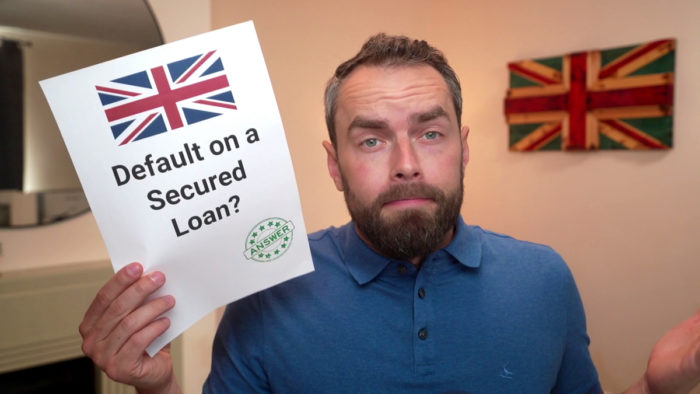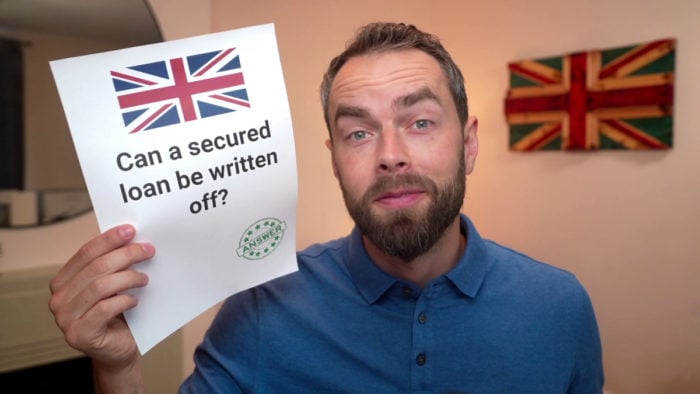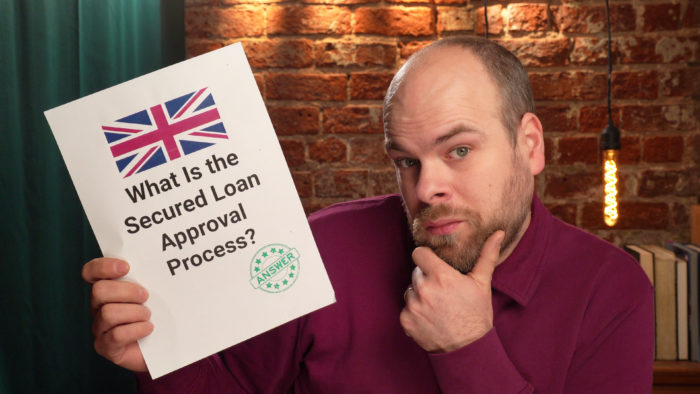What Happens if You Default on a Secured Loan?
Representative example: If you borrow £34,000 over 15 years at a rate of 8.26% variable, you will pay 180 instalments of £370.70 per month and a total amount payable of £66,726.00. This includes the net loan, interest of £28,531.00, a broker fee of £3,400 and a lender fee of £795. The overall cost for comparison is 10.8% APRC variable. Typical 10.8% APRC variable

Representative example: If you borrow £34,000 over 15 years at a rate of 8.26% variable, you will pay 180 instalments of £370.70 per month and a total amount payable of £66,726.00. This includes the net loan, interest of £28,531.00, a broker fee of £3,400 and a lender fee of £795. The overall cost for comparison is 10.8% APRC variable. Typical 10.8% APRC variable
Are you wondering, ‘What happens if I don’t pay back a secured loan?’ You’re not alone. Each month, over 6,900 people visit our website seeking advice on secured loans.
We understand that dealing with such a complex issue can be stressful. So, we’re here to help you grasp what a secured loan is, how it works, and what happens if you find it hard to pay it back.
In this straightforward guide, we’ll delve into:
- The meaning of a secured loan and how it functions.
- The real cost of a bad secured loan.
- What a payment default is.
- The consequences of defaulting on a personal loan.
- How to handle secured loan arrears.
Remember, you’re not alone in this journey. Many people face the same worries and doubts when it comes to secured loans.
We’re here to provide you with clear and simple advice, so we can navigate this topic together.
What happens when you default on a personal loan?
When you default on any type of loan, the lender will record your default on your credit file so other lenders are aware that you have not been able to stick to a credit agreement. What happens next will depend on if you’re defaulting on a secured loan or an unsecured loan.
What would a lender do if you default on a secured loan?
So, what happens when you default on a secured loan? The answer is the lender will continue to chase you for repayments. You should contact your lender to discuss the situation at this stage.
If you do not respond to their request for payment and more defaults materialise, only then will they look to repossess your asset used as collateral and sell it. They do not decide to repossess assets after just one default and will usually be open to a working solution for both parties.
Lender |
APRC |
Monthly payment |
Total amount repayable |
|---|---|---|---|
| United Trust Bank Ltd | 5.99% |
£218.73 |
£26,247.92 |
| Pepper Money | 6.86% |
£220.24 |
£26,429.17 |
| Together | 6.95% |
£220.40 |
£26,447.92 |
| Selina | 7.5% |
£221.35 |
£26,562.50 |
| Equifinance | 7.7% |
£221.70 |
£26,604.17 |
| Spring | 10.5% |
£226.56 |
£27,187.50 |
| Loan Logics | 11.2% |
£227.78 |
£27,333.33 |
| Evolution | 11.28% |
£227.92 |
£27,350.00 |
Representative example: If you borrow £34,000 over 15 years at a rate of 8.26% variable, you will pay 180 instalments of £370.70 per month and a total amount payable of £66,726.00. This includes the net loan, interest of £28,531.00, a broker fee of £3,400 and a lender fee of £795. The overall cost for comparison is 10.8% APRC variable. Typical 10.8% APRC variable.
Search powered by our partners at LoansWarehouse.
Can I lose my home due to secured loan arrears?
You can lose your home if you are unable to repay a secured loan debt when the loan has been secured with your home or with home equity. Some examples include generic personal loans secured with a property, home equity loans and first or second charge mortgages. However, repossession of a home is usually a last resort even when you borrow money through a secured loan.
If there is another debt tied to your home – such as an existing mortgage – the mortgage lender will get priority over any funds raised from the sale. Anything remaining can be collected by the secured loan lender, and anything remaining will be the ex-homeowner’s money to keep.
A secured loan against a different asset will not cause you to lose your home, but it can cause you to lose the asset you used as collateral.
» TAKE ACTION NOW: Compare deals from the UK’s leading lenders
What happens if I don’t pay a secured loan?
If you do not pay your secured loan after multiple defaults and no solution, the lender will probably continue to repossess your asset used as security and then sell it.
The money raised will be used to pay back the loan amount in full plus the interest rate you agreed to and any late charges that have been applied on your arrears. There may even be administration costs to pay from the money raised as well.
The sequence of events will be recorded on your credit report for six years.
Secured loans for all purposes
- Stuck paying high interest on credit card debts & loans?
- Looking to fund a home improvement project?
- Dreaming of finally taking the once-in-a-lifetime trip?

Polly
“This was by far possibly one of the nicest experiences I’ve had getting a secured loan.”
Reviews shown are for Loans Warehouse. Search powered by Loans Warehouse.
Will my credit score be affected?
Each loan repayment default will be recorded on your credit report and will cause your credit score to deteriorate. If the debt does not end up being paid back at all, this will cause your credit score to decrease further. These events remain on your credit file for six years and can prevent you from getting other secured loans, unsecured loans or even a credit card.
How to deal with secured loan arrears?
If you have missed loan repayments and are unsure what to do, the first step is to contact your lender and explain the situation. Most lenders are willing to work with you and come up with a solution that doesn’t lead to the repossession of your home or asset. This may look something like smaller loan payments but for longer, meaning you end up paying more back than originally agreed.
If you cannot come to an agreement with the lender directly, you may want to consider one of the many debt solutions. These solutions could help you with this and any other debts you have, with some solutions enabling you to block contact and possibly write the loan off in time.
Can you get out of a secured loan?
A secured loan debt can only be written off if the lender agrees to write it off. This is highly unlikely, especially when your listed asset makes it much easier for them to recover the debt in comparison to an unsecured loan.
If you want to avoid your asset being repossessed but cannot make repayments as originally agreed, you should follow the guidance mentioned just above and consider speaking with a UK debt charity group.


